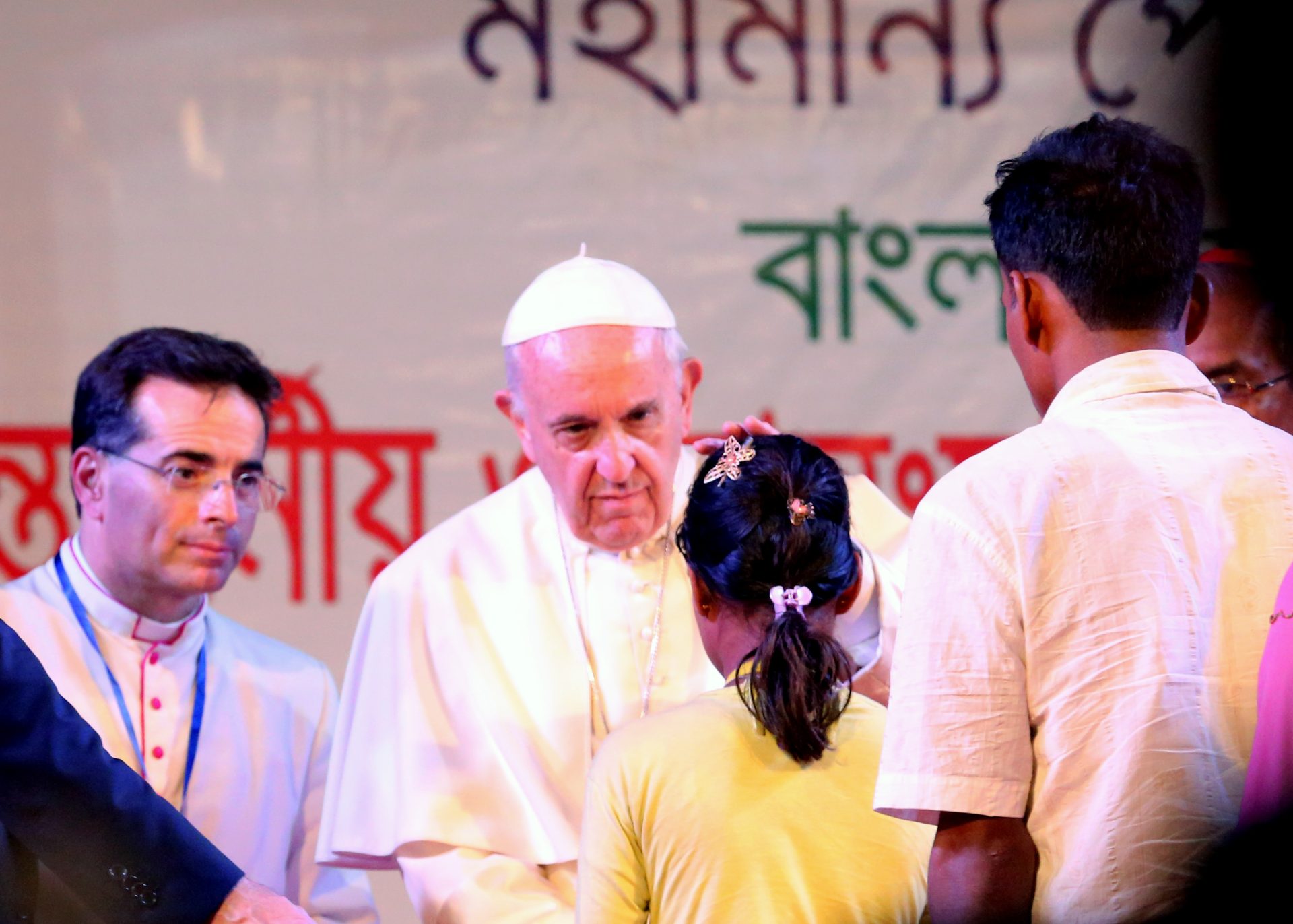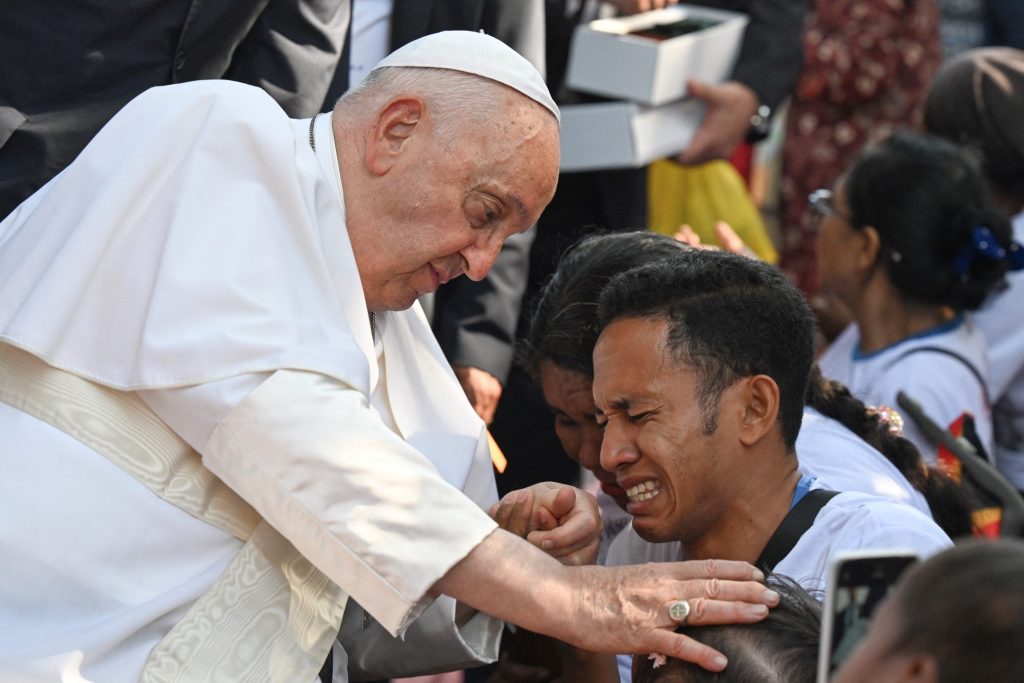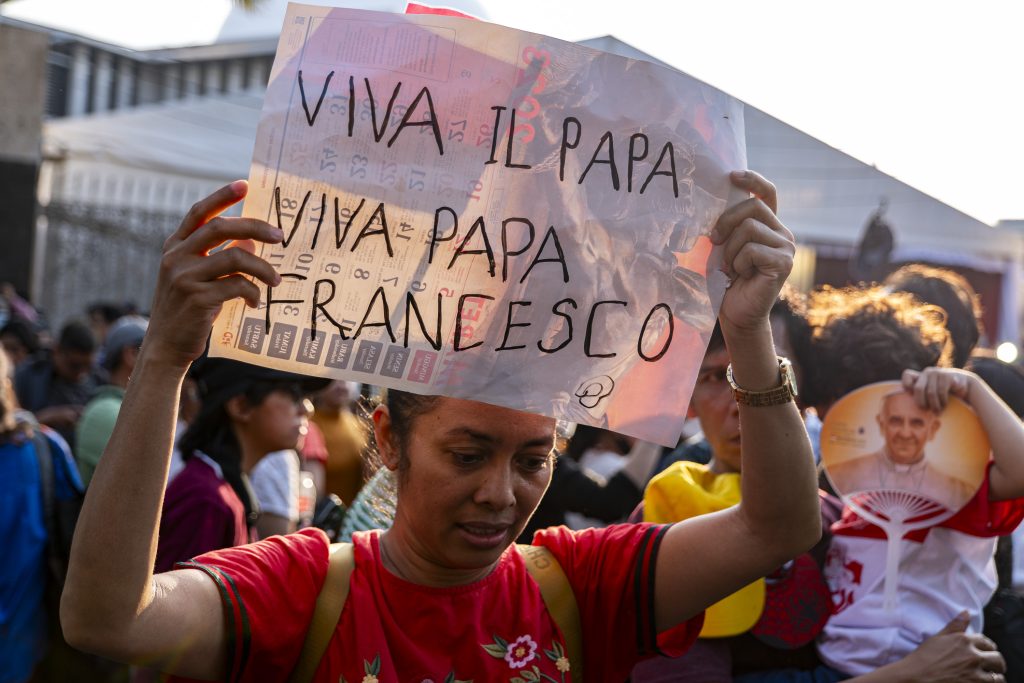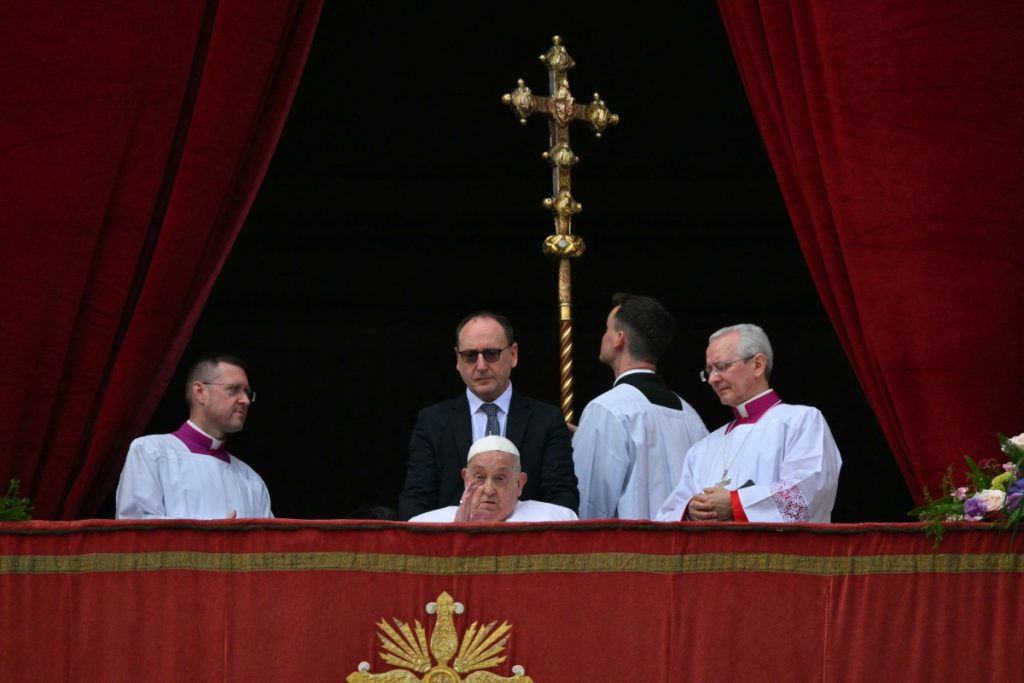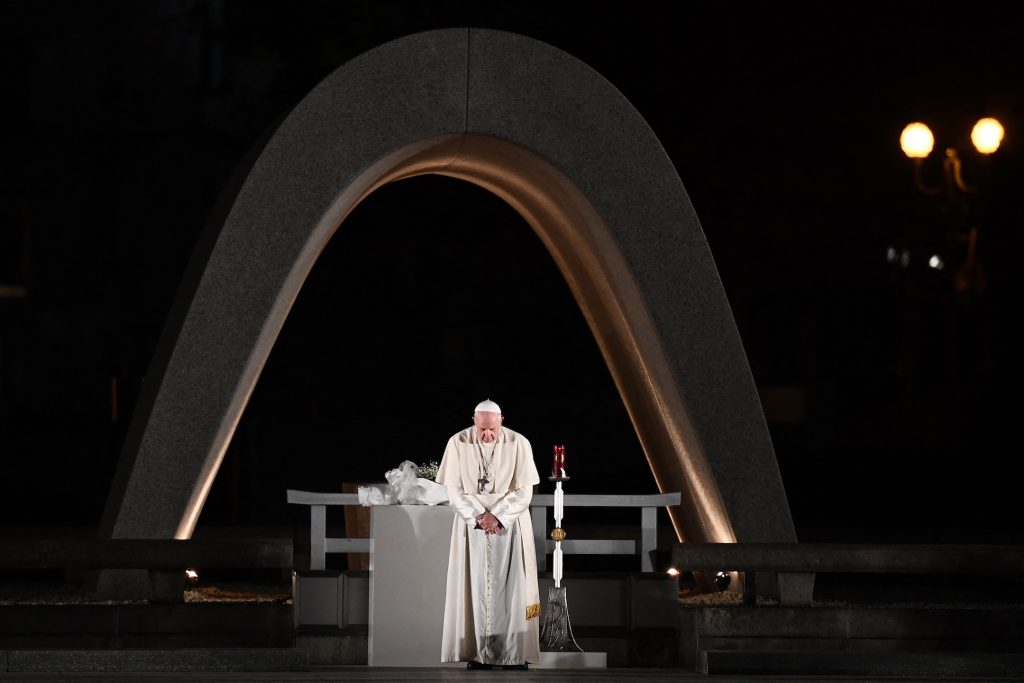The world woke today to the sorrowful news that Pope Francis, beloved Bishop of Rome and Shepherd of the Universal Church, passed away peacefully at 7:35 a.m. at the Casa Santa Marta, his residence within Vatican City. He was 88 years old.
The official announcement was made shortly thereafter by Cardinal Kevin Farrell, Camerlengo of the Apostolic Chamber:
“Dearest brothers and sisters, with deep sorrow I must announce the death of our Holy Father Francis. At 7:35 this morning, the Bishop of Rome, Francis, returned to the house of the Father. His entire life was dedicated to the service of the Lord and of His Church. He taught us to live the values of the Gospel with fidelity, courage, and universal love, especially in favor of the poorest and most marginalized. With immense gratitude for his example as a true disciple of the Lord Jesus, we commend the soul of Pope Francis to the infinite merciful love of the One and Triune God.”
The news of his death struck like a thunderclap through the Eternal City and across the world — just hours after tens of thousands of pilgrims had seen him briefly appear on the central balcony of St. Peter’s Basilica following the Easter Sunday Mass, and later, traveling through the square in the popemobile, waving, blessing, and smiling, even in great frailty. Among those pilgrims, I stood in awe — never imagining it would be the last time we would see him.
He was visibly weak, but the tenderness in his face remained — a gentle shepherd who gave his final public blessing just as he had lived his papacy: close to the people, radiating compassion.
A Pope for the Peripheries
Born Jorge Mario Bergoglio in Buenos Aires, Argentina, on December 17, 1936, the first Jesuit pope and the first from the Global South was elected on March 13, 2013, after the resignation of Pope Benedict XVI. From the outset, he chose the name Francis — a signal of the humble, radical path he would take, inspired by St. Francis of Assisi.
His pontificate was defined by mercy, dialogue, simplicity, and his unwavering commitment to the poor and marginalized. He washed the feet of prisoners, embraced the sick, and opened doors for the wounded to return to the Church. He challenged the world’s powerful to turn away from “the globalization of indifference” and pleaded for peace in places ravaged by war and injustice.
He re-centered the Church around the Gospel values of love, humility, and service, reminding us always that “the name of God is Mercy.”
A Pilgrim Pope for a Wounded World
Pope Francis lived and led through historic challenges: global migration, climate change, the COVID-19 pandemic, political polarizations, and economic inequalities. He refused to be a distant figure — instead, he made himself a pilgrim to the peripheries of the world, visiting refugee camps, war zones, and slums. He reminded Catholics not to remain comfortable behind church walls but to go out and “make a mess” — to bring the Church to the people.
His encyclicals — Evangelii Gaudium, Laudato Si’, and Fratelli Tutti — have become spiritual roadmaps for a more just, inclusive, and sustainable world. His papacy opened new pathways of dialogue with other religions, particularly Islam, and his landmark Document on Human Fraternity, signed in Abu Dhabi, stands as a lasting legacy of interfaith collaboration.
The Final Days: Hope to the End
This past Holy Week — his last — was marked by his physical absence at the major liturgies due to illness, but not by silence. He continued to guide the faithful through written homilies rich in wisdom and hope. In his Good Friday reflections, he warned against “inhuman economies built on cold logic and implacable interests,” calling us back to “God’s economy — which does not kill, discard or crush.”
On Easter Sunday, in what is now his final message, he urged the Church to rise with Christ:
“Do not be passive in your Easter joy. Take action. Look for Jesus — in the faces of your brothers and sisters, in the business of everyday life, everywhere except in the tomb.”
A Church in Mourning, a World in Prayer
As news spreads, the bells of Rome toll solemnly and sadly. The faithful gather once again in St. Peter’s Square — this time, not to rejoice in Easter alone, but to mourn the passing of the one who led them through so many Good Fridays with courage and grace.
The world has lost a moral compass. The Church has lost a beloved pastor. But the legacy of Pope Francis — his words, his gestures, his tireless love for the least — will continue to breathe life into the Church he so faithfully served.
He has gone home to the Father. And we, the pilgrims he inspired, must now continue the journey — as pilgrims of hope — living the Gospel he preached with our lives.
Requiescat in pace, Papa Francesco.
You have shown us the face of Christ.

